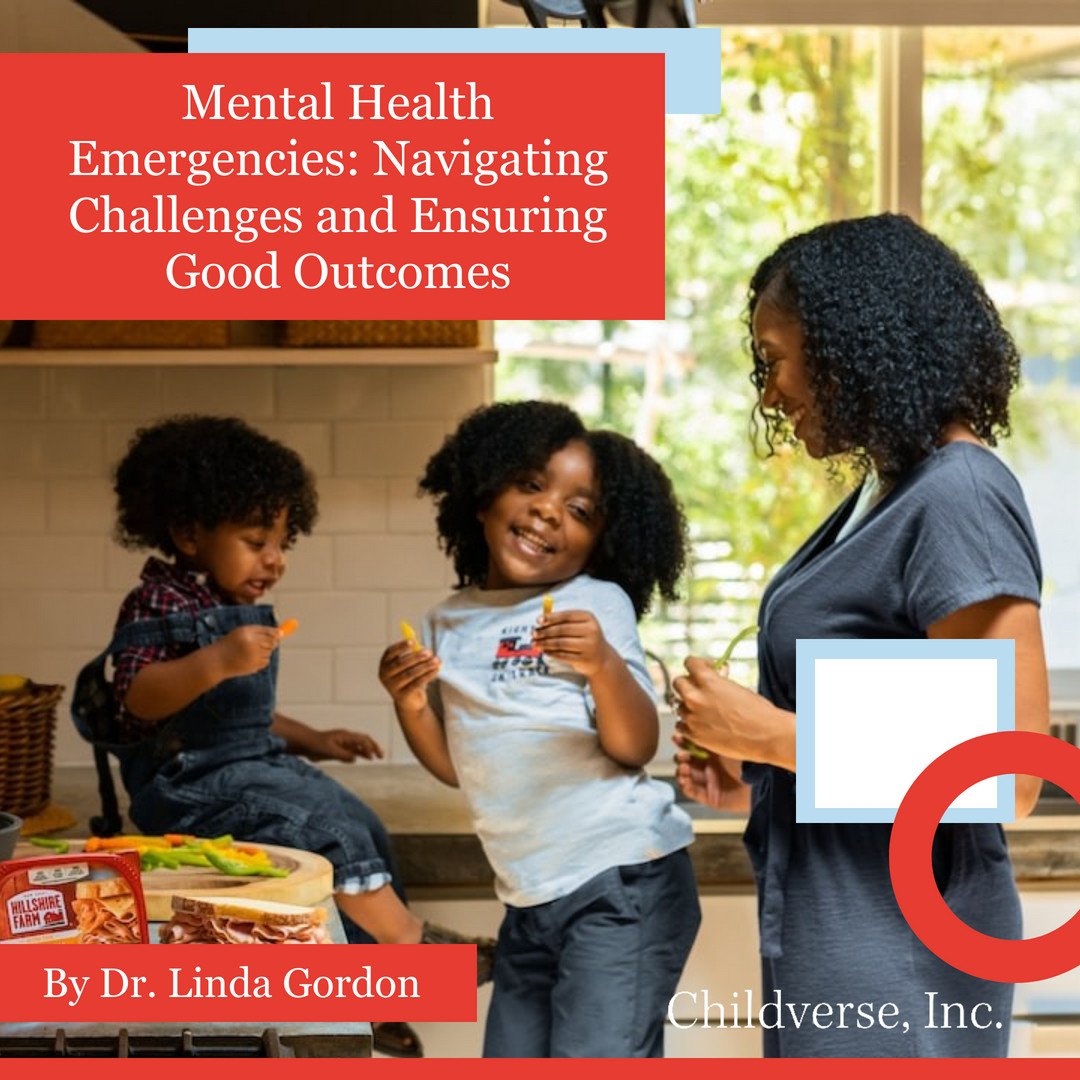Mental Health Emergencies: Navigating Challenges and Ensuring Good Outcomes
Mental health emergencies are a reality for parents, advocates, and patients with these conditions. Caring for a family member with mental health conditions presents unique challenges that require empathy, understanding, and a commitment to providing ongoing support and care.
The challenge lies in being intentional, timely, supportive, and ensuring good outcomes. These emergencies can include traumatic breakthroughs in therapy, medication side effects, suicidal ideation, and threat of harm to others. Successful management of mental health emergencies is achieved with an action plan, anticipated expectations, and appropriate use of healthcare, legal, and social resources.
Remaining Calm: The Foundation for Effective Intervention
It is important to remain calm. This is achieved with a well-thought-out action plan for life’s settings including school, work, and home. Confidence in the action plan will empower caregivers, the healthcare team and community members in successful implementation of intervention. The goal is to transition from emergency to diagnosis with subsequent recovery. Remaining calm also maintains the element of safety needed to protect all parties involved.
Ensuring Safety: Recognizing the Crisis and Responding Appropriately
Safety requires recognition of the crisis and adoption of appropriate responses. The emergency plan should guide decision making. It is desirable that those with mental health and those intervening ensure their safety in an appropriate and thoughtful manner. The decision to act solely or with the aid of support should vary depending upon the risk to the patient and those wishing to help. Also, the support requested should be situation specific.
Anticipatory Planning: Addressing Vulnerabilities and Triggers
The situation specific response is generated in an anticipatory manner. Communicate with those suffering from mental health conditions to know their vulnerabilities, triggers, and changes in mentation. Listen to healthcare providers regarding risks of treatment. Understand school and community concerns and when it is and is not needed to include resources such as social work and law enforcement. Anticipatory and situation specific planning and response is a form of love for those with mental health and self-love as a caregiver and advocate. This mindfulness for crisis is comforting and realistic and demonstrates a concern for the lives touched by those challenged by mental health.
Being Informed: Advocating for Mental Health
Be prepared with the necessary information including mental health conditions, medications, providers, educators, triggers, etc. Advocating for the mental health challenge includes being informed and effective dissemination of information. Be prepared to make the right call be it to the therapist, psychiatrist, hospital, or law enforcement. Call the right resource for the right reason. This is reassuring to all parties and avoids the recruitment of misplaced resources. Preparation offers reassurance that the realities of illness are recognized and supported for wellness success.
Accessing Professional Support: Avoiding Isolation
Mental health emergencies require identification, planning, and appropriate response. Avoid isolating your loved one or yourself from professional support to aid in care. Seeking guidance from healthcare professionals ensures access to the necessary expertise and resources for effective intervention.
Conclusion
Navigating mental health emergencies is a challenging endeavor that demands intentional and timely action. By remaining calm, prioritizing safety, engaging in anticipatory planning, staying informed, and accessing professional support, parents, advocates, and patients can navigate these emergencies with greater efficacy. Through collaborative efforts and a comprehensive approach, positive outcomes and recovery can be achieved for those affected by mental health conditions.
Childverse, Inc. navigates the mental health care system for children to find you resources that help treat conditions with evidence based care & therapy. Contact our professional advisors today at (256) 809-8328.
Make sure to follow us on Facebook & Instagram to stay up to date on the latest effective tips for your child and loved ones!
